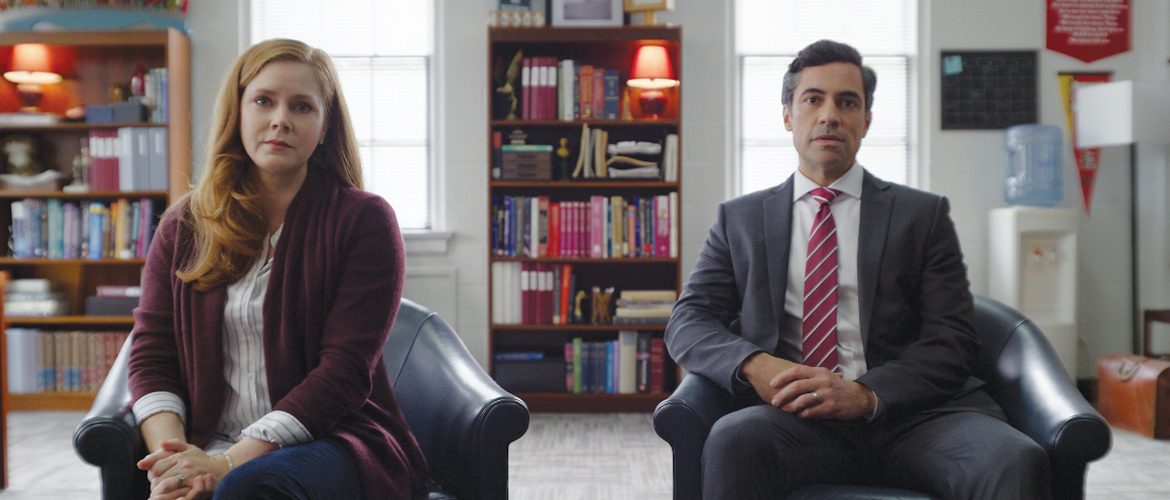By Diane Howard, Ph.D.
The breathtaking, generation-defining Broadway musical “Dear Evan Hansen” of 2015 has now become a soaring cinematic event as Tony, Grammy and Emmy Award winner Ben Platt reprises his role as an anxious, isolated teenage boy aching for understanding and belonging amid the chaos and cruelty of the social-media age. In 2021, the themes of this story are even more relevant today.
In 2015, problematic, harmful, and debilitating impacts of social media on teens were addressed in “Dear Evan Hansen,” along with the related issues of teen suicide. Now, added to these themes are the challenges for teens who have been isolated further by pandemic school lockdowns and now are trying to re-socialize with their peers for this new school year. Also, there is the issue of the common use of medications for these teens to manage relationships with others with their minimal face-to-face interactions. Consequently, social skills have added new layers to the complex socialization issues these teens face today.
Evan Hansen (Ben Platt) is on the outside, always looking in—a high-school senior who’s all but invisible to his classmates. A motivational letter Evan writes to himself is stolen by Connor Murphy, a volatile loner in Evan’s class. Connor is later found by his mother, Cynthia (Amy Adams), and stepfather after the boy takes his own life. The letter, they hope, means that their son had found his only friend in Evan. To console a grieving family, Evan spins a tale of a friendship that never existed.
What starts as an innocent lie of compassion spirals in ways Evan didn’t expect and isn’t prepared for. As he begins to be celebrated for someone he isn’t, Evan struggles to find the courage to tell the truth and be seen for who he truly is. This powerful new cinematic musical has been directed by acclaimed filmmaker Stephen Chbosky, who also directed the outstanding movie, “Wonder.”
To transition “Dear Evan Hansen” to the screen, it was essential for producers Marc Platt and Adam Siegel to find a filmmaker with the ideal artistic and emotional insight and sensibility. They found that director Stephen Chbosky had a special understanding of the intricacies of adolescence.
“Stephen had a very personal connection to the story, and he’d already made a couple of films dealing with high-school kids and isolation,” Marc Platt says. “Those two elements persuaded us that he’d be an interesting storyteller for this film. Indeed, he was.”
The potential for the film of “Dear Evan Hansen” to help teens and their parents resonated deeply with Chbosky. He met with Marc Platt and Siegel to talk about why he was interested in directing the film. “I’ve spent the past 15 years of my career making thoughtful movies to empower and understand young people,” Chbosky says. “Based on my experiences… I know how popular entertainment can influence young people.”
Chbosky saw “Dear Evan Hansen” as an opportunity to speak directly to the mental health issues that young people face—the isolation they feel with social media and their peers— which is even more widespread now than when the show was initially created. “Certainly, after the pandemic, it’s even more intense,” Chbosky says.
The more Platt and Siegel discussed Chbosky’s detailed ideas, the more they were inspired by his passion and identification with the story. Platt was impressed by the depth, nuance, and insight Chbosky brought to the film’s intricate family dynamics as the characters struggle with anxiety, depression, and loss. “Stephen is very good with actors and understands the dynamics between parents and kids,” Marc Platt says. “He was able to find that even beneath the written words.”
Although Evan is the central character, all the characters—Connor’s mother Cynthia, sister Zoe, stepfather Larry, among others—are grappling with their own pain. “I related deeply to Larry’s anger and Zoe’s anger, as well as Cynthia’s desire to keep Connor’s memory alive—and all the machinations you go through,” Chbosky says.
In Chbosky, Platt and Siegel had found a filmmaker who could elevate the raw emotions of Dear Evan Hansen and avoid both stereotype and sentimentality. “Stephen has an internal tuning fork that knows what is right and what is wrong,” Siegel says. “He knows his characters so intimately, as he knows them like a writer would. The emotional truth with which he tells a story is what attracted us to him. All of us have been touched by this in a real way, and Chbosky came at it full-on. He leads with his heart.”
Here is my exclusive interview with director Stephen Chbosky:
DH: How have the pandemic lockdowns added new layers of difficulty for teens who have been struggling with harmful, debilitating, isolating impacts of social media?
SC: They have exacerbated the problems that have now become epidemics. The suicide rates have risen to the levels of mental patients in the 1950’s with kids having the same levels of anxieties. These problems were there before the pandemic, but now are worse. I hope now that kids are face-to-face more that they will learn to appreciate each other and their real interactions.
DH: Why have teens been tempted more than ever with suicide?
SC: Kids think they have to be perfect. This is unsustainable and impossible. Now, we have this culture of online celebrity and hatred, causing division, causing people to turn on each other. There is the pervasive idea that perfection must be total and that people’s opinions have power. Now, there is a permanent record online of our shortfalls and failings. Even top students are dealing with depression, unrealistic expectations, over concern about Likes on social media and more. The truth is that no one is perfect. We all make mistakes. Forgiveness and redemption are possible.
DH: How does this movie address the isolation, socialization, and suicide issues that teens face today?
SC: It is honest and authentic with these complexities, while also showing the possibilities of hope, better ways of living, and of redemption.
DH: What kinds of solutions does the movie suggest?
SC: It encourages kids to be themselves, that they are enough as themselves. Therapy can be helpful. It is important to connect with caring adults.
DH: How can teens develop good social skills and find healthy socialization experiences?
SC: Although they may seem to push others away, especially adults who care about them, they need to talk and be encouraged not to be afraid to talk and face the pain. They need to bring their pain into the light.
DH: How can adults help teens with healthy social skills and socialization?
SC: Adults can be examples of good social skills and socialization. They can model good behavior. They can discourage phones and other technological devices at meals. They need to live congruent with their values.
DH: How do music and film help audiences to connect with the teen stories in this movie?
SC: Music connects us communally in church, in relationships, with God, and to art. Film provides close-ups to the hard things with which people deal. Film shows respect and validation of people even with the tough issues.
Diane Howard, Ph.D. is a dialogue, dialect and voice-over coach, as well as a journalist who writes about the role of faith in movies and in the entertainment field. Her website is dianehoward.com.







